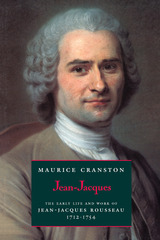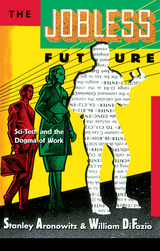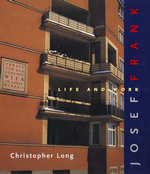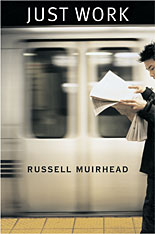4 start with J start with J

"[An] admirable biography which is as meticulous, calm, reasonable, and judicious as its subject is passionate and tumultuous."—Keith Michael Baker, Washington Post Book World
"The definitive biography, as scholarly as it is entertaining."—The Economist
"Exceptionally fresh . . . . [Cranston] seems to know exactly what his readers need to know, and thoughtfully enriches the background—both physical and intellectual—of Rousseau's youthful peregrinations . . . . He makes the first part of Rousseau's life as absorbing as a picaresque novel. His fidelity to Rousseau's ideas and to his life as it was lived is a triumph of poise."—Naomi Bliven, The New Yorker
"The most outstanding achievement of Professor Cranston's own distinguished career."—Robert Wokler, Times Literary Supplement
Maurice Cranston (1920-1993), a distinguished scholar and recipient of the James Tait Black Memorial Prize for his biography of John Locke, was professor of political science at the London School of Economics. His numerous books include The Romantic Movement and Philosophers and Pamphleteers, and translations of Rousseau's The Social Contract and Discourse on the Origins of Inequality.


Educated in Vienna just after the turn of the century, Frank became the leader of the younger generation of architects in Austria after the First World War. But Frank fell from grace when he emerged as a forceful critic of the extremes of modern architecture and design during the early 1930s. Dismissing the demands for a unified modern style, Frank insisted that it was pluralism, not uniformity, that most characterized life in the new machine age. He called instead for a more humane modernism, one that responded to people's everyday needs and left room for sentimentality and historical influences. He was able to put these ideas into practice when, in 1933, he was forced to leave Vienna for Sweden. There his work came to define Swedish (or Scandinavian) modern design. For more than thirty years he was the chief designer for the Stockholm furnishings firm Svenskt Tenn, producing colorful, cozy, and eclectic designs that provided a refreshing alternative to the architectural mainstream of the day and presaged the coming revolt against modernism in the 1960s.
In this sensitive study of one of the twentieth century's seminal architects and thinkers, Christopher Long offers new insight into Josef Frank's work and ideas and provides an important contribution to the understanding of modernist culture and its history.

This elegant essay on the justice of work focuses on the fit between who we are and the kind of work we do. Russell Muirhead shows how the common hope for work that fulfills us involves more than personal interest; it also points to larger understandings of a just society. We are defined in part by the jobs we hold, and Muirhead has something important to say about the partial satisfactions of the working life, and the increasingly urgent need to balance the claims of work against those of family and community.
Against the tendency to think of work exclusively in contractual terms, Muirhead focuses on the importance of work to our sense of a life well lived. Our notions of freedom and fairness are incomplete, he argues, without due consideration of how we fit the work we do.
Muirhead weaves his argument out of sociological, economic, and philosophical analysis. He shows, among other things, how modern feminism's effort to reform domestic work and extend the promise of careers has contributed to more democratic understandings of what it means to have work that fits. His account of individual and social fit as twin standards of assessment is original and convincing--it points both to the unavoidable problem of distributing bad work in society and to the personal importance of finding fulfilling work. These themes are pursued through a wide-ranging discussion that engages thinkers from Plato to John Stuart Mill to Betty Friedan. Just Work shows what it would mean for work to make good on the high promise so often invested in it and suggests what we--both as a society and as individuals--might do when it falls short.
READERS
Browse our collection.
PUBLISHERS
See BiblioVault's publisher services.
STUDENT SERVICES
Files for college accessibility offices.
UChicago Accessibility Resources
home | accessibility | search | about | contact us
BiblioVault ® 2001 - 2024
The University of Chicago Press









